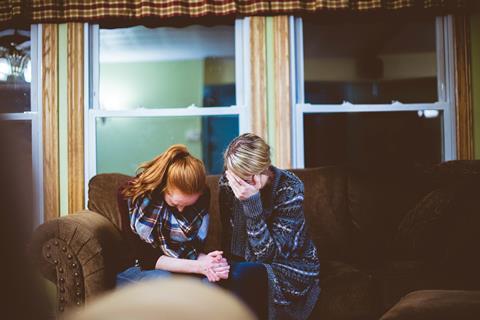“Safeguarding is not a mere tick box exercise but an extension of our Godly responsibilities as church leaders. If we fail in safeguarding, we fail in our Godly responsibility,” says Chioma Alade, Designated Safeguarding Leader at Living Temple Church.

The Archbishop of Canterbury, Justin Welby, resigned from his role on 12th November following thousands of signatures calling for him to step down due to his knowledge of child abuse reports to the Church of England concerning John Smyth - who is believed to be the most prolific serial abuser associated with the church.
In recent years there have been several scandals in the Church. What should and can be done to make church the safe haven it is supposed to be?
In my 16 years as a Christian, I’ve been a member of four different churches across three different denominations
In my 16 years as a Christian, I’ve been a member of four different churches across three different denominations/church types - Pentecostal, Church of England and non-denominational. Although I haven’t personally filed any safeguarding complaints, a friend of mine at one of the churches I attended did. A member of the church, much older than her (she was a university student at the time), persistently messaged her, making inappropriate comments. She took this complaint to church leaders expressing how she felt uncomfortable. The leaders approached the man directly about it. Yet, initially, this didn’t work and the messaging continued. The leaders mentioned how the man had some mental health issues and claimed that there was nothing much else they could do past what they had done. Thankfully, the messaging eventually stopped. But, during that time, my friend shared how uneasy she felt.
Situations like this highlight the importance of leaders prioritising their members feeling safe. Thankfully, there seems to be a rise in people boldly advocating for more safeguarding measures in the church.
A clergy sexual abuse survivor herself, Chioma understands the consequences of failed safeguarding in Christian contexts.
Chioma Alade is a Designated Safeguarding Leader at Living Temple Church. A clergy sexual abuse survivor herself, Chioma understands the consequences of failed safeguarding in Christian contexts. She explains: “My role includes being notified of and investigating the needs of vulnerable people in our Church community through pastoral care and if necessary, secular interventions.”
Explaining what the safeguarding complaint process in her church looks like, Chioma says: “[It] would be different depending on what the concern was. However, if abuse of any kind is involved, our church policy is to report it to the police. If notified that the police were already informed, we would check to ensure the process of justice is being carried out. All complaints are handled with care to ensure congregants feel they can question things and raise concerns.”
Explaining what safeguarding training looks like at Living Temple Church, Chioma says: “Our approach is quite different as we had the entire church undertake safeguarding training. I wanted the congregation, including our children, educated on vulnerable people, suspicious persons, creating an inhospitable environment for predators, trafficking, and other potential factors for abuse outside of the church. This approach might seem intense but I think in 2024 it is necessary. We must learn from the mistakes of previous eras in the church. We dedicated an entire Sunday to this, and will have more Sundays like this year on year as a refresher for our congregation and pastoral team.”
So why is safeguarding important from a biblical perspective? Well, we know that God cares for the most vulnerable in society. The Bible often references taking care of the widow and the orphan (James 1:27). Acts 20: 28 speaks to church leaders keeping watch over the flock and following after Jesus’ example of being the ultimate good shepherd. This highlights why care for the congregation should be prioritised.
Speaking on this, Chioma adds: “Safeguarding is not a mere tickbox exercise but an extension of our Godly responsibilities as church leaders. If we fail in safeguarding, we fail in our Godly responsibility.
Chioma said about preventative measures for safeguarding,: “The best preventative strategy is to create an inhospitable environment for predators. A church where security checks are done, references and DBS checks are required for volunteers with one-to-one contact. Where concerns are heard no matter how tough differences of opinion can be and questions answered, and a church willing to discuss abuse from the pulpit. When a predator realises their interactions will be monitored and their charisma, financial contributions, or position in society are not more important to a church than keeping its people safe, they will move onto another environment.”




































No comments yet